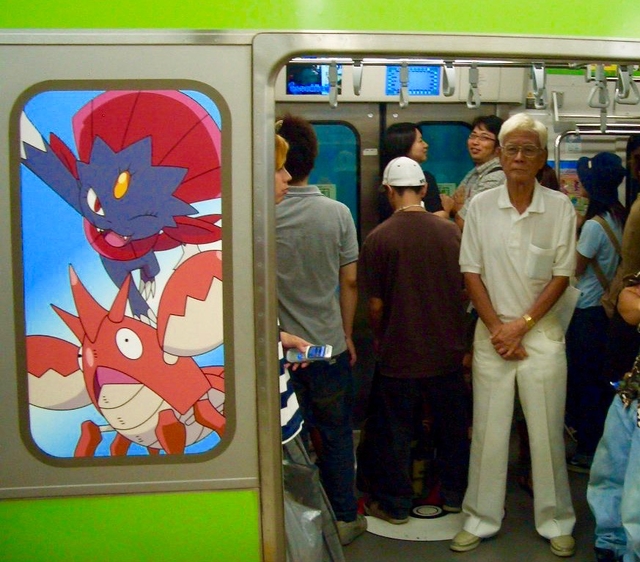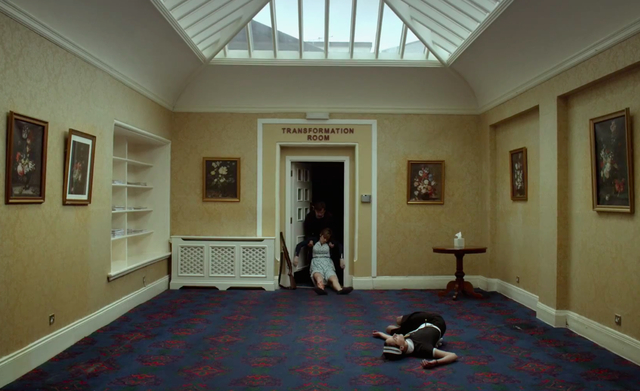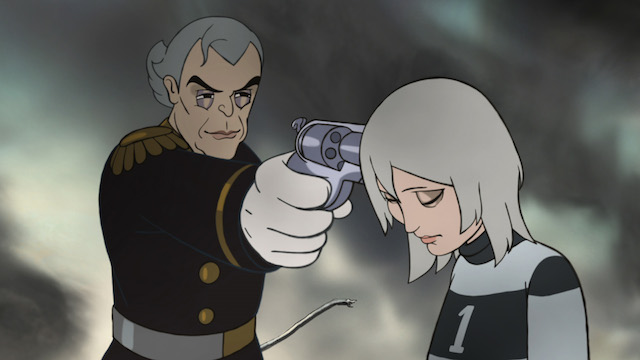If there’s a single word that captures relationships today, romantic or otherwise, it’s mediation. It’s not surprising that many of our interactions occur through various media; they have been doing so for a long time. But the way people meet and are able to construct and control— to an extent, anyway — the way their identities are presented in the digital world are relatively novel developments.
You can name your favorite books, movies, and more on Facebook. You can control privacy, the photos you choose to present, and the tagging of photos by others. You can meet people through gaming platforms. New and supposedly more successful dating sites emerge constantly, some even tailored to particular identity markers: 50+, ethnic identities, religious preferences, and so on. And these mediating technologies are quite successful — we all know many people who have met their partners online — but not without exerting a profound effect on how we view dating, relationships, and isolation. This proliferation of tools for finding that one true love, or even tepid companionship, add extra pressure to the process. They demand both time and money, not to mention that the process of chatting online and the dates that follow can be incredibly awkward.
Yet many would argue that these technologies are essential for introverts and promote more socializing, interaction, and chances to meet people you otherwise wouldn’t. In fact, there is evidence to prove it. On July 6, 2016, Nintendo released an app that would give an unprecedented boost to its stock and gain an equally unprecedented number of users. Pokémon Go utilizes iPhone cameras (as streaming video) and GPS capabilities that allow users to catch creatures imposed artificially within their cameras’ line of sight, coordinated with their real-time movement through physical space. It is a form of virtual reality never seen before, at least to this extent. Users are encouraged to leave their houses and find creatures in pre-marked sites, provided by a map of their area by the app, and to compete with others to capture the same creature first. Many have claimed they have become more social and met interesting new people along the way. Self-labeled introverts have been praising the app for making them get out of the house at all, tweeting about ways in which their social anxieties have subsided.
It was in this context that the piece I started writing a few weeks ago about The Lobster, a film directed by Yorgos Lanthimos, became not only more pertinent, but more culturally resonant. There are ways that Pokémon Go looks a lot like a version of the film, and reifies the cultural phenomenon the film satirizes. With the help of mediating technologies or institutions, we “connect.” But the film poses probing questions about whether those connections — or any connections, really — are authentic by themselves or if, rather, they will always require mediation to function. Watching the film twice within a few days didn’t make its message more powerful. Watching the Pokémon Go phenomenon unfold, to the great advantage of Nintendo, did. I became even more haunted by The Lobster. The film became more than a telling, if flawed, satire: it felt prophetic.
Imagine a writer and director engaging in an amusing conversation about the problem of mediated relationships, specifically online dating. How could a film capture that pervasive phenomenon? How would you go about allegorizing, through physical and material metaphors, Match.com, eHarmony, or Tinder in a world where these sites don’t exist? And what if those sites imposed a literal time limit and physical rather than monetary punishment for failing to meet someone? This seems to be the basis for The Lobster: you check into a resort with other singles in the hope of finding the perfect mate within forty-five days. And, as is also true of those dating sites, you need to claim a rather strict identity upon checking in. Who are you, really? Heterosexual? Homosexual? Bisexual? Bisexual is not allowed due to an operational issue. What animal would you choose to be if you don’t make it after 45 days? A lobster. A perfect choice indeed.
In the world of the film, these are not hypothetical questions, or questions posed playfully on a date. Think of the awkward date scene in the other recent near-future satire on modern dating and alienation, Spike Jonze’s similarly dystopian Her. Its protagonist Theodore falls in love with a bodiless computerized AI. Early in the film, he goes on a date with a “real” woman, and they suppose, hypothetically, what animal the other would be if they had the power to do so. He chooses tiger for her; she initially chooses puppy for him. Theodore defiantly claims that he wants to be a dragon, not coincidentally a mythical creature in a world addicted to video games and AI. Back in the perversely idyllic setting of The Lobster resort, however, this speculative exercise is a reality. It also represents a choice that further defines people who have to choose a “defining characteristic,” which becomes part of their personal advertising package or profile.
And what, after all, is one’s defining characteristic as a single person? A limp due to a leg injury, a constant bloody nose, a lisp on the S and Z, nearsightedness: these are the defining characteristics people choose in the hotel in order to find a proper match, generally someone with a similar defect. As mediating factors among many in the film, these may all seem like shallow characteristics. But perhaps not. Could they actually be the the sort of markers of identity that shape and define dating today, as configured by the technologies that introduce you to a complete stranger? We’ve created technologies that match people quite superficially in contrast to older ways of coming together, such as meeting someone serendipitously or being paired by their parents, which weirdly feels more sincere than the institution introduced by The Lobster. The film suggests that even when you have all the choices in the world right in front of you, and everyone is searching for love, people will still be utterly lonely, reduced to and restricted by the very characteristics — mostly superficial defects — that outwardly define them.
Much goes unexplained in the plot of The Lobster and the rules surrounding the institution it depicts. There’s no sense to this new technology of dating, and no sense to the mythical aspects of the film, which still weirdly seem to make sense. Fail to find your match, and you are turned into an animal. Life in the city appears to go on as normal, though you are monitored to see whether you have a partner. It’s a cruel world where people still kill and eat animals, even though the act could be considered cannibalism. After all, that animal could be your cousin, or aunt, or neighbor. But people kill people as well, at least the “deviant” ones, which in this world means single people. The dutiful guests at the resort — one is tempted to refer to them as “inmates” — must hunt the people living in the adjoining forest, who have chosen to run away rather than losing their humanity. And they earn more days at the resort for each “catch” (not unlike the premise of Pokémon Go). The hunt brings people together, whether those who are still searching for love at the resort or the resolutely single forest deserters. The only protection in this life of capture and murder is “love”, or the illusion of it, in the form of coupledom.
My favorite bit of dialogue — one that defines the hierarchies in the film — comes from the hotel manager. On one’s last night before becoming an animal, one should choose activities that animals cannot do: read a piece of classic literature, sing a song that you like. But don’t fuck another human being. You can engage in intercourse as an animal. Yet in the harsh reality the film depicts, as a single, non-committed human you can’t fuck, or kiss, or flirt, as you have chosen to be alone. This is perhaps an allegory for high-pressure contemporary dating culture: if you are a loner, you will be destitute. Everything you do, everything you are must take place outside of the institution of marriage or its de facto equivalent, and is therefore stigmatized.
I had doubts about whether I could write about The Lobster after seeing the film a second time. After the first viewing, I had been reeling with thoughts, in discomfort, but productively so. My second viewing was a completely different experience: funnier, certainly, but also far less compelling and visceral because I knew what was coming. The film transformed from genre-less — part of its initial allure — to a somewhat reductive satire. The Lobster quite literally pinches you and holds you in its grip, but once you know what that “first time” feels like— in all its awkwardness, excitement, and pain — it seems emptier the second time regardless of the film’s message. You could say that this is a film that depends on kairos almost entirely. At first, I thought this was a weakness of the film, after it fell a bit flat on second viewing. But it has become, as a result of Pokémon Go and recent news stories, kairotic once again.
Yet not everyone is willing to face the news. Both times I saw The Lobster, whole groups of people, including several couples, left the theater. Perhaps this is a testament to the power of the film. That discerning moment when people walk out of a film despite the price of admission is revealing. It’s obvious why they would have felt the need. Formally and thematically The Lobster is a perfect concoction of alienation and identification. It’s alienating because of the stilted speech of the characters, the awkward interactions between them, and the boredom of the couples who have nothing of substance to say. But more prescient and painful is the identification. Couples are given a young boy or girl “child”, when the relationship is strained, in an attempt to keep them together through responsibility or distraction. I’m sure many couples can identify, even if some of them would never admit it.
Satire exaggerates and inverts real phenomena in order to make a point. Some people take it seriously in the least productive way. In our time, many avoid feeling uncomfortable over the opportunity to critique a cultural phenomenon that begs to be critiqued. In a way, The Lobster is a strange hybrid of The Hunger Games and Pokémon Go, but less popular due to its themes. Children mass murdering other children makes for a huge hit. An app in which you capture and enslave creatures becomes an addiction in the midst of news stories about police killing innocent black people and ISIS keeping sex slaves. But the need for mediation, the limitations of online dating, the loneliness of single life, the boredom of relationships: these topics are, for some, too much. The Lobster is difficult, yes; and violent; and sexually awkward; and crass; but so are we. The final argument of the film is that one must really look in the mirror — knife pointed directly at our own eyes — to confront all the ways in which we have been blind to our fate in an era when technology is increasingly likely to mediate even the most intimate exchanges.
Photograph courtesy of Todd Lappin. Published under a Creative Commons License.




